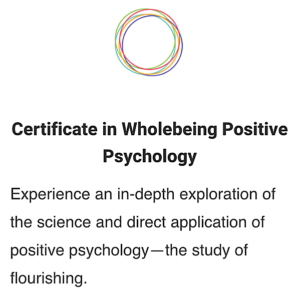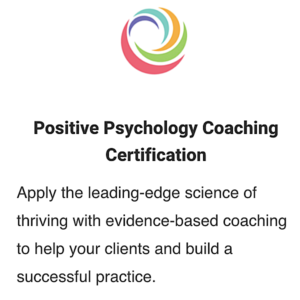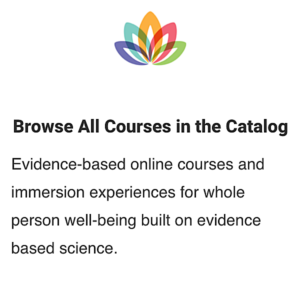by Maria Sirois
A vice president is looking for ways to shift her experience of daily stress so that she can be more present for both her teams and her family.
A father of young children worries about how to be a great dad while his wife undergoes transplant surgery.
A yoga teacher searches for the right balance between demonstrating her strengths and being honest about her vulnerabilities.
A teen wonders how to create a life of meaning and joy, despite the pressures of growing up in the 21st century.
Each of these scenarios is based on a real person, and each of them found the answers they sought through the study of resilience. At its most basic level, resilience is the capacity to adapt in a healthy way to difficult circumstances, such as illness or chronic stress. It’s also about crafting a life that is true and rich, one full of meaning, pleasure, and the capacity to ride the waves of life with a sense of inner peace and a clear mind and heart.
True serenity does not come when we protect ourselves from life’s challenges, but rather when we learn to find ease and strength within, no matter what life sends our way—in other words, to create an experience of heaven even in the midst of hell. Nelson Mandela modeled resilience after 27 years in prison, emerging prepared to serve his nation without rancor or bitterness. The young Pakistani activist Malala Yousafzai demonstrates resilience each time she challenges the status quo, invoking the right of girls to be educated.
This resilience is available to all of us. We each have some degree of it, and we can amplify that capacity—no matter our age or circumstances—in order to move toward our best selves. Resilience is a choice we make each time we lead from our strengths, practice mindfulness, gather wisdom from our failures, and make small changes that elevate our health, happiness, and sense of inner calm.
There are many practices and tools for bringing a bit more heaven into our every day, no matter what the day entails. When practiced diligently, these techniques become a foundation for increasing resilience. Research from the fields of Positive Psychology and mind-body medicine shows that those of us who are happiest and most resilient tend to be skilled at the art of savoring—we look for the good in each day and learn to hold onto those moments, no matter what else is on the horizon. To savor—from the Latin word sapere, to taste—is the art of relishing that which provides sustenance. We can train our eyes and hearts to find the beauty, wonder, and joy in our days, that which is sweet, uplifting, heartwarming, inspiring, and magnificent.
Try this simple practice: Each night, just before closing your eyes, ask yourself, “What was the great moment today?” Do this practice for 30 nights in a row.
Some nights, you’ll remember simple wonders—the appearance of your favorite fruit on your plate, a gift from a friend, or the right word spoken at exactly the right time to lift your spirits. Other nights, you’ll recollect astonishing moments: a birth, a reunion, an engagement, a seemingly impossible synchronicity. As you practice answering this question, you’ll discover the truth that each day has a great moment. You will gradually train your mind to look for the good, and, as you take this resilient perspective, you’ll actually begin to change your neurochemistry in the direction of optimistic thinking and positive emotions.
After 30 days, you will have formed a habit of savoring, one that will stay with you even in dark times. This is a powerful beginning to crafting a resilient life.
—This post was originally published in Kripalu: Thrive.
Dr. Maria Sirois, PsyD, is the Vice President of Curriculum at Wholebeing Institute and an inspirational speaker, seminar leader, and author who has worked at the intersections of wellness, psychology, and spirituality for nearly 20 years. As a wellness guide, Maria has been invited to keynote throughout the country at conferences for wellness centers, hospitals, hospices, philanthropy, business, academic and corporate institutions, as well as for the general public. She has been called both a “true teacher” and “an orator of great power and beauty.” Her book, “Every Day Counts: Lessons in Love, Faith, and Resilience from Children Facing Illness, was published in 2006.”


 Dr. Maria Sirois, PsyD, is the Vice President of Curriculum at Wholebeing Institute and an inspirational speaker, seminar leader, and author who has worked at the intersections of wellness, psychology, and spirituality for nearly 20 years. As a wellness guide, Maria has been invited to keynote throughout the country at conferences for wellness centers, hospitals, hospices, philanthropy, business, academic and corporate institutions, as well as for the general public. She has been called both a “true teacher” and “an orator of great power and beauty.” Her book, “Every Day Counts: Lessons in Love, Faith, and Resilience from Children Facing Illness, was published in 2006.”
Dr. Maria Sirois, PsyD, is the Vice President of Curriculum at Wholebeing Institute and an inspirational speaker, seminar leader, and author who has worked at the intersections of wellness, psychology, and spirituality for nearly 20 years. As a wellness guide, Maria has been invited to keynote throughout the country at conferences for wellness centers, hospitals, hospices, philanthropy, business, academic and corporate institutions, as well as for the general public. She has been called both a “true teacher” and “an orator of great power and beauty.” Her book, “Every Day Counts: Lessons in Love, Faith, and Resilience from Children Facing Illness, was published in 2006.”


